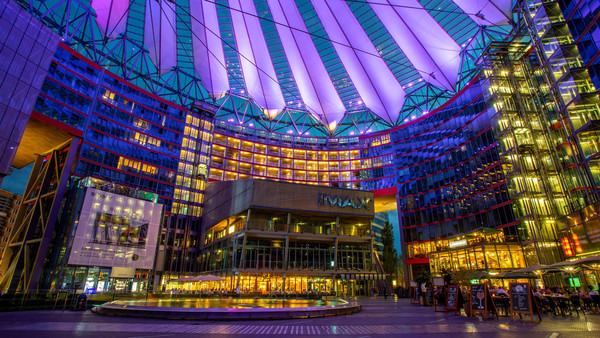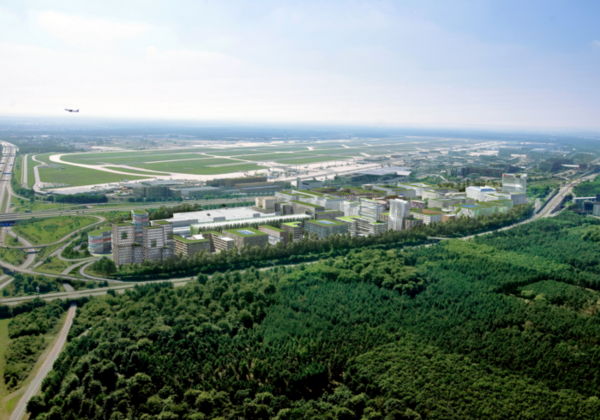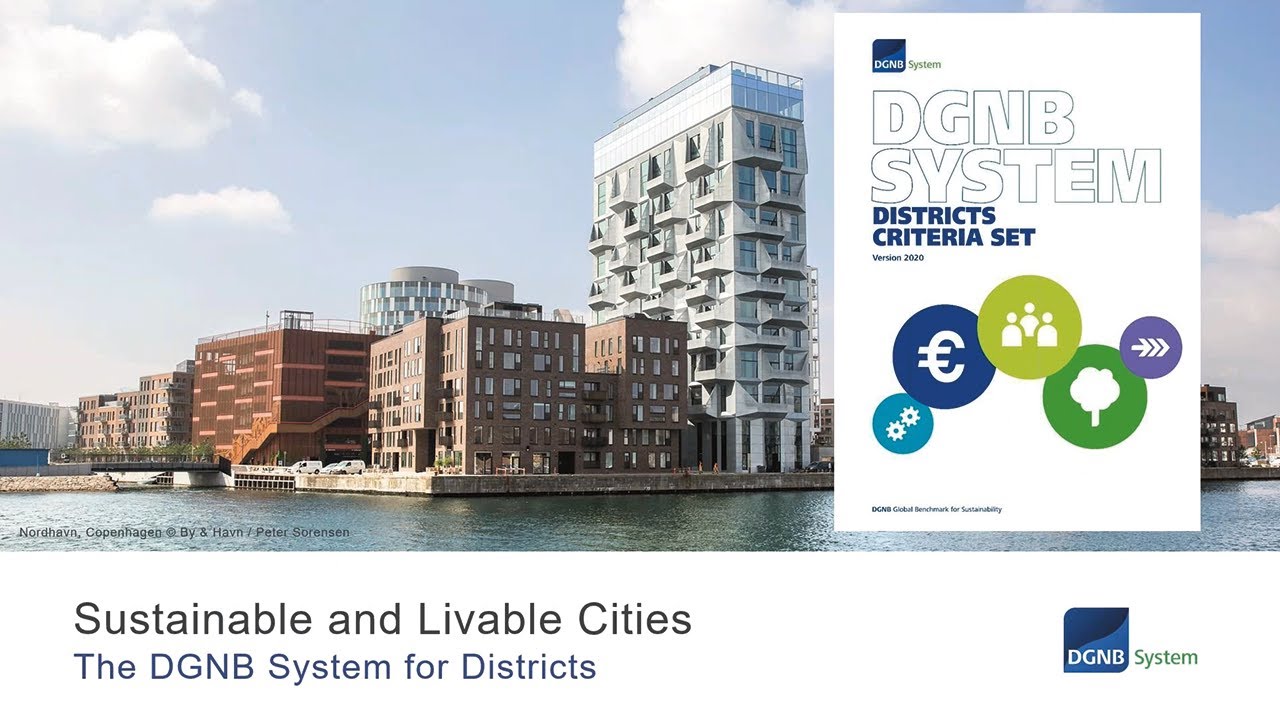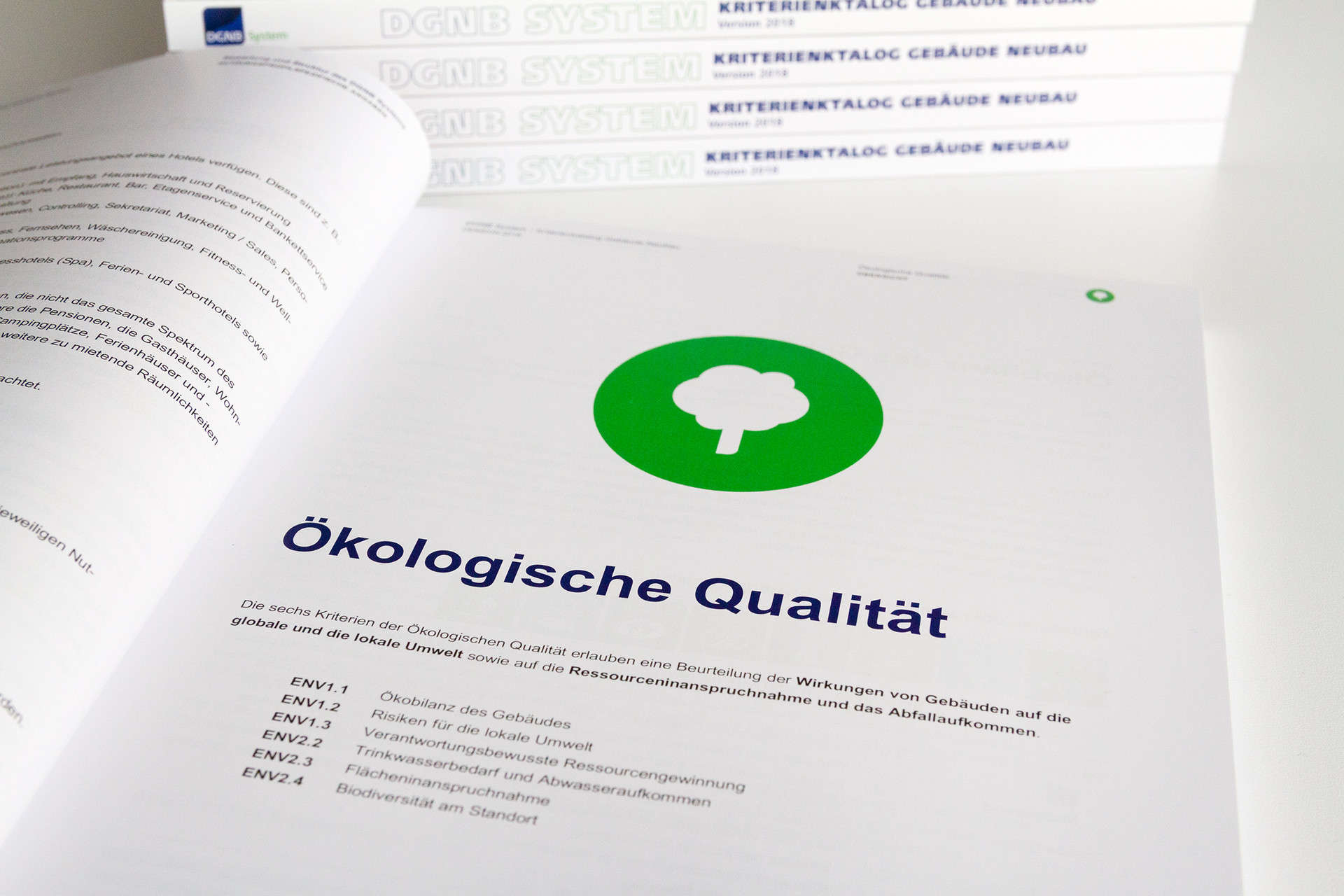Business districts, in which mainly buildings for services, special uses (e.g. cinemas) and other commercial forms are located, are increasingly discussed in the sustainability debate and move into focus of municipal strategies for sustainable urban development. In this context, the design and optimisation of individual buildings is not enough to create a sustainable district with a high quality of life. Future-proof cities need climate-neutral districts that are able to contribute more to sustainability and climate action than all of their individual buildings taken together. In addition to issues of climate action and climate adaptation or sustainable mobility, networking with neighbouring districts, creation of synergies between businesses and energy and material cycles that are as closed as possible play an important role for business districts. In addition, concepts for improving the quality of spaces and childcare as well as shopping facilities for employees are just as relevant as the topics of life cycle assessment and technology. The DGNB scheme for business districts provides support as a planning tool.
The current DGNB System for Districts, version 2020, applies to business districts.
- Contribution to climate action through reduced emissions of greenhouse gases over the entire life cycle
- Adaptation to climate change (use of rainwater; sponge city)
- Improvement of biodiversity (e.g. through greening)
- Establishment of energy cycles and re-use of materials at district level (circular economy)
- Improvement of social and functional diversity
- High quality of space
- Creation of added value for neighbouring districts and beyond
- More intensive use of open spaces outside office hours
- Improvement of health, e.g. through attractive footpaths and cycle paths as well as low noise and pollutant emissions
- Sustainable mobility offers
- Saving resources and costs through the sensible use of technical systems (smart infrastructure)
- Maximum use and generation of renewable energies in the district
- High flexibility of construction sites, buildings and open spaces
- Holistic consideration of all relevant sustainability requirements
- Transparent and independent quality assurance
- Certification as a tool to implement municipal sustainability goals in practice
- Image building as an attractive and sustainable district
- Communication of the project to the public and increase of acceptance
- Marketing and financing advantages
- High value stability
- Increasing the attractiveness of the location to attract innovative companies
- Reduced effort for DGNB building certification due to the creditability of evidence from district certification
- International applicability and comparability
- Contribution to the United Nations Sustainable Development Goals (SDGs)
Selected DGNB certified projects

Business Districts

Commercial Areas
The criteria sets available
DGNB Criteria Set Districts, Version 2020
Project registration

To register a project, clients must first hire a DGNB Auditor. This auditor can then register the project. Auditors also accompany the entire process and take over the verification and submission to the DGNB. They are active worldwide and specialise in certain schemes.
The current DGNB System for Districts applies to business districts.
Your contacts


Matthias Schäpers
Manager Initiatives and Climate Positive Cities
- Phone: +49-711-722322-95
- Email: m.schaepers@dgnb.de


